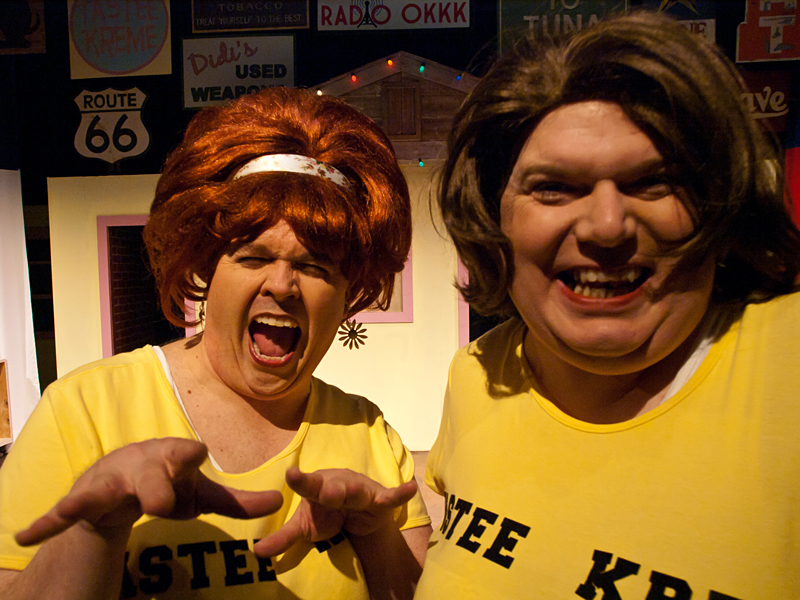When theaters lock themselves into an obligatory Christmas production this time of year, the proper response for discerning ticketholders should be to gift those seats to a great aunt or the nearest senior center. At best, these shows are over-the-top kitschy; at worst, they’re musicals. Plaid Tidings, which occupied this slot on ArtsWest’s 2009 calendar, was both over-the-top kitschy and a musical, and was therefore unbearable. If you made it through the whole thing, you were either a total yuletide sucker or the type of person who enjoys waiting three hours for her number to be called at the DMV.
Based on its title and setup, A Tuna Christmas should be similarly horrifying. Two actors, Jay Jenkins and Buddy Mahoney, play 11 different characters each in the fictitious redneck town of Tuna, Texas, where “round yon virgin” is considered too racy a lyric for the holiday stage and the radio station is called OKKK.
Good God.
But the funny thing about A Tuna Chrismas is that it’s actually funny. It’s also smartly written, brilliantly acted, briskly paced, and borderline moving. The dialogue gets Texas’ unique lexicon quite right, although the KKK stuff would be better rooted east of Texarkana (or nowhere—it’s the one off-color touch that feels more off than colorful). Plot is secondary to the haphazard relationships among a host of small-town archetypes—gun-shop owner, greasy-spoon waitress, tough-luck housewife, juvenile delinquent, closeted community-theater director, society matron—but what passes for a narrative fulcrum is one woman’s quest for an umpteenth consecutive title for her Christmas yard display and the stealth counter-initiative to foil it.
At least half the play’s 22 characters feel fully formed, an extraordinary accomplishment that’d be a challenge for even the late Robert Altman to pull off. And, as you might assume, Tuna includes a never-ending swirl of frantic costume changes. It does not, however, entail more than a normal amount of set changes, which makes the lack of props baffling. Instead, Jenkins and Mahoney pantomime most, if not all, encounters with physical objects. It’s amateurish and initially off-putting, but the pair gets the audience over it rather quickly.
Tuna could be more affecting had its creators taken a sharper angle into the abusive couplings they choose to play only for laughs. Granted, such a maneuver would risk throwing the play’s easy, whimsical mood into occasional upheaval. But it’s a risk we’d pay to see taken.








